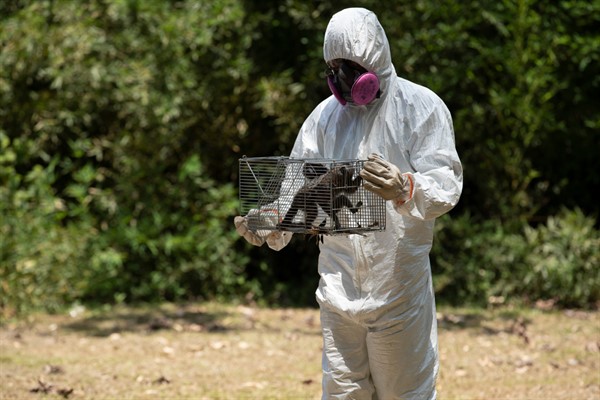In recent decades, scientists have identified dozens of new, potentially deadly pathogens that originated among other animal species but have the capacity to infect humans. SARS-COV-2, the virus that causes COVID-19, is one such zoonotic virus, and humankind’s vulnerability to them is increasing as a result of population growth, globalization, climate change and other processes.
A recently launched project called STOP Spillover aims to anticipate and address the threats posed by zoonotic pathogens. This week on Trend Lines, the director of STOP Spillover, Deborah Kochevar, joins WPR’s Elliot Waldman to discuss some of the latest interventions that are being devised to prevent animal-borne illnesses from spreading among human populations. Kochevar is also dean emerita of the Cummings School of Veterinary Medicine at Tufts University. She has a doctor of veterinary medicine degree from Texas A&M University and a Ph.D. in cellular and molecular biology from the University of Texas.
If you would like to request a full transcript of the episode, please send an email to podcast@worldpoliticsreview.com.
Listen:
Download: MP3
Relevant Articles on WPR:
To Prevent Future Pandemics, Start by Protecting Nature
Now More Than Ever, New Strategies Are Needed to Protect Animal Health
Earth Day’s New Urgency in the Era of COVID-19
Four Lessons From a Painful Pandemic Year
Trend Lines is edited by Peter Dörrie, a freelance journalist and analyst focusing on security and resource politics in Africa. You can follow him on Twitter at @peterdoerrie.
To send feedback or questions, email us at podcast@worldpoliticsreview.com.




